| Article ID | Journal | Published Year | Pages | File Type |
|---|---|---|---|---|
| 4270274 | The Journal of Sexual Medicine | 2013 | 10 Pages |
IntroductionAlmost half of breast cancer survivors experience chronic sexual problems. Despite the negative effects of dyspareunia on physical and overall quality of life, sexual dysfunction remains underreported and undertreated in clinical practice. This is likely due to the paucity of evidence‐based interventions to improve sexual functioning.AimThe study aims to prospectively evaluate the acceptability, feasibility, and efficacy of a novel intervention (Olive Oil, Vaginal Exercise, and MoisturizeR [OVERcome]) to improve sexual problems following breast cancer treatment.Main Outcome MeasuresDyspareunia, sexual functioning, quality of life, distress, and pelvic floor muscles (PFMs) functioning were evaluated.MethodsTwenty‐five women with dyspareunia were instructed to perform pelvic floor muscle (PFM) relaxation exercises twice/day to prevent/manage PFM overactivity, apply a polycarbophil‐based vaginal moisturizer three times/week to alleviate vaginal dryness, use olive oil as a lubricant during intercourse, and complete a weekly compliance diary. PFM relaxation training was administered by a physiotherapist at weeks 0 and 4, with follow‐up at weeks 12 and 26. At each visit, women completed validated self‐report questionnaires and the physiotherapist recorded objective measures of PFM functioning.ResultsOVERcome resulted in significant improvements in dyspareunia, sexual function, and quality of life over time (all P < 0.001). PFM relaxation training was reported to be effective (P ≤ 0.001). Maximum benefits were observed at week 12. Most women rated PFM relaxation exercises (92%), vaginal moisturizer (88%), and olive oil (73%) as helpful, indicating that the intervention was acceptable. Unexpectedly, six cases (11%) of vaginal stenosis were noted during initial screening.ConclusionsThis novel intervention is acceptable to patients with demonstrated efficacy in improving dyspareunia and sexual function following breast cancer. Delivery of the OVERcome intervention appears feasible in a clinical setting, providing a potential treatment for this important clinical issue. The unexpected number of observed cases of stenosis further highlights the underreporting of sexual problems in this population, deserving further exploration. Juraskova I, Jarvis S, Mok K, Peate M, Meiser B, Cheah BC, Mireskandari S, and Friedlander M. The acceptability, feasibility, and efficacy (Phase I/II study) of the OVERcome (Olive oil, Vaginal Exercise, and moisturizeR) intervention to improve dyspareunia and alleviate sexual problems in women with breast cancer. J Sex Med 2013;10:2549–2558.
